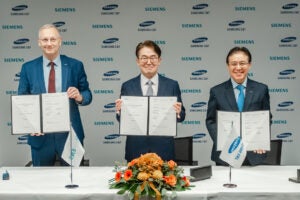The embattled Vermont Yankee Nuclear Power Station in Vernon, Vt., will be permanently shuttered in the fourth quarter of 2014 after its current fuel cycle, plant owner Entergy Corp. announced on Tuesday.
The decision to close the 41-year-old boiling water reactor was based on a number of financial factors, including sustained low natural gas prices and wholesale energy prices, the Louisiana-based company said. Concerns have also mounted about the single-unit plant’s high-cost structure. “Since 2002, the company has invested more than $400 million in the safe and reliable operation of the facility. In addition, the financial impact of cumulative regulation is especially challenging to a small plant in these market conditions,” it said.
Entergy also blamed “wholesale market design flaws,” which it said “continue to result in artificially low energy and capacity prices in the region, and do not provide adequate compensation to merchant nuclear plants for the fuel diversity benefits they provide.”
The company will now establish a decommissioning planning organization responsible for planning and executing the safe and efficient decommissioning of the facility. The amount required to meet the federally required minimum for decommissioning financial assurance for license termination is $566 million. The Vermont Yankee decommissioning trust had a balance of approximately $582 million as of July 31, 2013.
“Once the plant is shut down, workers will de-fuel the reactor and place the plant into SAFSTOR, a process whereby a nuclear facility is placed and maintained in a condition that allows it to be safely secured, monitored and stored,” the company said.
Earlier this month , a federal court upheld a lower court ruling that Vermont Yankee could remain operating beyond the state of Vermont shutdown deadline of March 2012. The three Vermont state laws governing the plant were grounded in nuclear safety concerns—and they were therefore invalid because they are preempted by the federal Atomic Energy Act, the court ruled.
The Vermont Yankee Nuclear Plant began operating in 1972 under a 40-year operating license issued by the Atomic Energy Commission (the Nuclear Regulatory Commission’s [NRC’s] predecessor). In 2006, however, Vermont’s General Assembly passed a law that outlined the requirements for continued operation of a nuclear power plant in the state. Later, in 2010, the state Senate voted 26-4 to block the plant from operating past March 2012, when its state permit expired.
In 2011, the NRC issued the plant a 20-year license extension that allows it to operate until 2032. Entergy, which bought the plant from a group of New England utilities in 2002, last year filed suit, arguing Vermont’s 2006 law violated a key provision of a Memorandum of Understanding signed by Vermont officials and other parties at the time of the plant’s purchase.
The plant sells power wholesale on the interstate market.
Entergy’s move to decommission the Vermont reactor follows Duke Energy’s recent decision to abandon the Levy reactor project in Florida on low gas price concerns. France’s EDF last month also withdrew from the U.S. nuclear power market citing dramatic changes spurred by cheap natural gas.
This year alone, Southern California Edison moved to decommission its two-reactor San Onofre plant in California, Dominion shuttered its Kewaunee plant in Wisconsin, and Duke Energy permanently closed the Crystal River plant in Florida.
“This was an agonizing decision and an extremely tough call for us,” said Leo Denault, Entergy’s chairman and chief executive officer. “Vermont Yankee has an immensely talented, dedicated and loyal workforce, and a solid base of support among many in the community. We recognize that closing the plant on this schedule was not the outcome they had hoped for, but we have reluctantly concluded that it is the appropriate action for us to take under the circumstances.”
Sources: POWER, Entergy
—Sonal Patel, Senior Writer (@POWERmagazine, @sonalcpatel)








